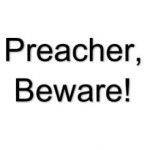Luke 2:8 – Shepherds: a despised class?

It is sometimes thought (and said, by preachers) that shepherds were a despised class in Israel at this time.
This opinion has been voiced by scholars both old and new. For example, Butler (2000) wrote,
‘Shepherding had changed from a family business as in David’s time to a despised occupation.’
Stein (1992), wrote:
‘In general, shepherds were dishonest and unclean according to the standards of the law. They represent the outcasts and sinners for whom Jesus came.’
Ian Paul quotes Randy Alcorn:
In Christ’s day, shepherds stood on the bottom rung of the Palestinian social ladder. They shared the same unenviable status as tax collectors and dung sweepers.
The external evidence for this, however, is rather thin.
It is true that Aristotle said that of all people, ‘the laziest are shepherds, who lead an idle life.’ But Aristotle was Greek, and not Jewish, and he was writing 300 years before New Testament times. It is in Greek literature generally (rather than in Scripture) that shepherds are depicted in a negative light.
The Mishnah – a collection of sayings of the Jewish rabbis dating from just before the time of Christ to about 200 AD – contains one statement indicating that shepherds were despised. The Babylonian Talmud – dating from around 500 AD – records more rabbinic statements of this nature, but is too late to be a reliable guide to attitudes in New Testament times.
The internal evidence, on the other hand, rather indicates that shepherds were not a despised class, even though they would have been regarded as rather lowly and ‘ordinary’.
Eric Franklin (Oxford Bible Commentary) points out that sheperds were a lowly, but not despised, class in biblical times:
‘At the heart of Luke’s understanding of the redemption wrought by Jesus was his knowledge that in him the excluded had been included; the outsider had been brought within the people of God. His story will tell of the inclusion of tax-collectors and sinners, of women, of the poor, of the marginalized, and, ultimately, of the Gentiles. So it is right that his infancy narrative should tell of the message of angels to shepherds and that it should be they, rather than the Gentile sages of Matthew’s gospel, who should visit the infant Jesus. David was called to Bethlehem from minding the sheep in order to receive anointing at the hands of Samuel (1 Sam 16:11), and later tradition emphasized the graciousness of the action (2 Sam 7:8). After the Exile, the shepherd’s task became devalued and, outside the biblical period, was despised. Luke’s story does not reflect that belittling, but it does picture them as outsiders, apart from the general ordering of society that was taking place at the time of the census. It is to them that the announcement ofJesus’ birth is made.’
According to Luke 2:18, people were ‘astonished’ when the shepherds related to them what they had been told about the new-born baby. But they were not amazed because it was shepherds who were telling them the news. Rather, they were amazed at the content of the message. There is no hint here of surprise that the message had been entrusted to members of some underclass.
Overall, the biblical portrayal of shepherds is positive. Abraham, Moses and David were all associated with shepherding. God himself is represented as a shepherd in Gen 49:24; Psa 23; 80:1; Eze 34:12 and elsewhere. In the New Testament, Jesus is described as a shepherd in Mt 2:6; 26:31, and describes himself as such in Jn 10:11. Then again, Heb. 13:20 and 1 Pet 2:25; 5:4 refer to Jesus as a shepherd. Finally, church leaders are called to shepherd God’s flock, Acts 20:28; 1 Pet 5:2.
In his commentary on Luke, Joel Green comments that the shepherds, although they were peasants, could hardly have been despised by those who relied on them for the sacrificial system.
Ian Paul concludes:
‘The significance of the shepherds is not that they were particularly poor or marginalised, but that they were ordinary rather than elite. What matters is not whether we are rich or poor, but that we are human, and that in itself is poverty enough in comparison to the riches of his grace, freely offered in Jesus.’
Based in part on: Urban Legends of the New Testament: 40 Common Misconceptions (B&H Academic), David Croteau.